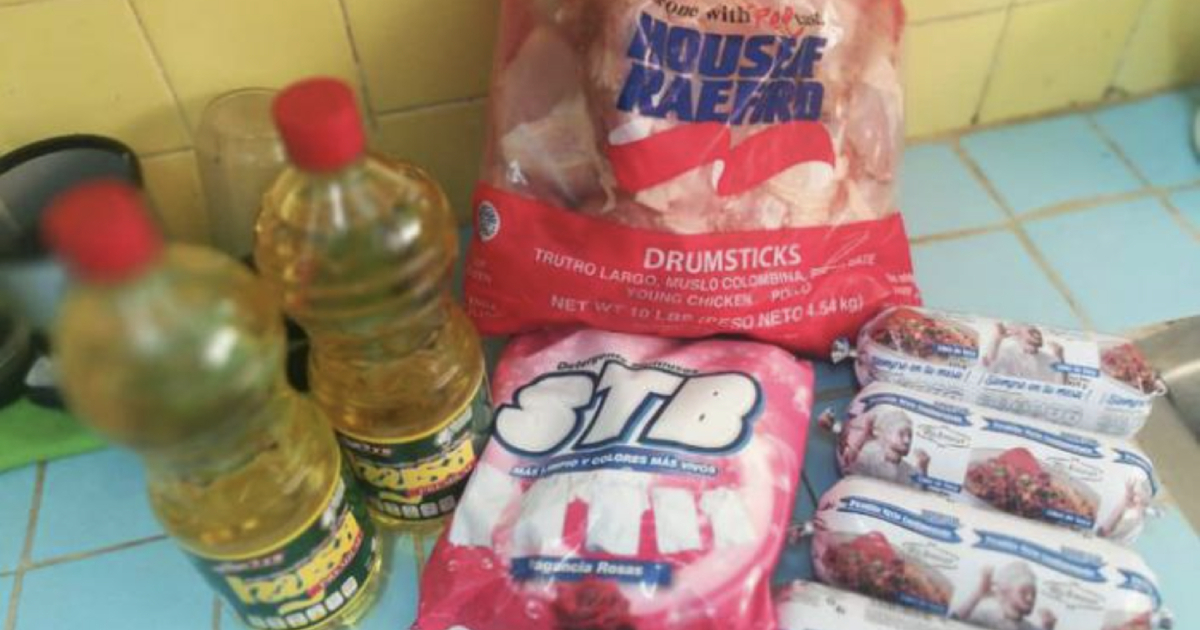The Food Monitor Program, which tracks and reports on food security issues in Cuba, has warned that the recent government decision to cap food prices could exacerbate shortages and expand the black market in the country. The Food Monitor Program detailed the implications of the new resolution in a thread on the social media platform X.
"The Cuban government has established a 'war economy' by imposing price caps on basic foods. This unilateral measure could negatively impact the private sector, deter investments, create more shortages, and amplify the black market. Moreover, it empowers executive decrees without consensus or accountability," the organization noted.
The Cuban government announced on Monday the implementation of price caps on six high-demand basic products under Resolution 225/2024, published in the Official Gazette of Cuba. The products affected include chicken parts, edible oils (except olive oil), powdered milk, pasta, sausages, and powdered detergent.
This measure is presented by authorities as an effort to mitigate the impact of inflation on consumers by eliminating the Customs Tax on imports of these products and setting maximum sale prices.
Private entrepreneurs caution that this is not the right path. The new prices set by the authorities are as follows:
- Chicken parts: 680 pesos per kilogram
- Edible oils (except olive oil): 990 pesos per liter
- Powdered milk: 1,675 pesos per kilogram
- Pasta: 835 pesos per kilogram
- Sausages: 1,045 pesos per kilogram
- Powdered detergent: 630 pesos per kilogram
However, far from reassuring Cubans, this government resolution is generating fear among the population, who are well aware of the consequences of price caps in Cuba.
Manuel Viera, a lawyer, expressed his frustration with the situation. "This will starve us! No private importer will take the risk of importing if the dollar fluctuates without being able to adjust the price. It's economic suicide!" he exclaimed.
He believes that products will be sold on the black market. "And then, when it runs out, we'll have to do like the goat!" he said, referring to eating grass, paper, garbage, or anything available.
Like Viera, other Cubans are already complaining about the lack of products in stores. "Can anyone tell me where I can buy powdered milk at 1,675 pesos per kilo? Yesterday it was 2,500, but today it's gone! The children's milk for the first of the month is still not available in stores! Now prices are capped... but there's no milk!" the lawyer asked.
Experts' opinions are not encouraging. Renowned Cuban economist Pedro Monreal also analyzed the potential consequences of this resolution. According to Monreal, "instead of using the market to make the plan more flexible, they paralyze the market with the plan." On his X profile, the expert pointed out that this measure forces national private companies to adopt the Soviet method of price formation, which he considers a mistake.
"It's a gross error to persist with a bureaucratic economic calculation instead of one based on market prices," he concluded.
While the government defends the measure as a relief against inflation, citizens and specialists fear that these regulations will worsen shortages and fuel the black market, further affecting the already delicate economic situation and food scarcity in the country.
Implications of Price Caps in Cuba
In this section, we address some common questions and concerns regarding the recent implementation of price caps on basic products in Cuba and their potential impact on the economy and society.
Why did the Cuban government impose price caps on basic products?
The government introduced price caps to mitigate the impact of inflation on consumers by eliminating the Customs Tax on imports of these products and setting maximum sale prices.
What are the potential negative effects of these price caps?
Experts warn that such measures could lead to increased shortages, deter private sector investment, and expand the black market, ultimately worsening the economic situation and food scarcity in Cuba.
Which products are affected by the price caps?
The products affected by the price caps include chicken parts, edible oils (except olive oil), powdered milk, pasta, sausages, and powdered detergent.
